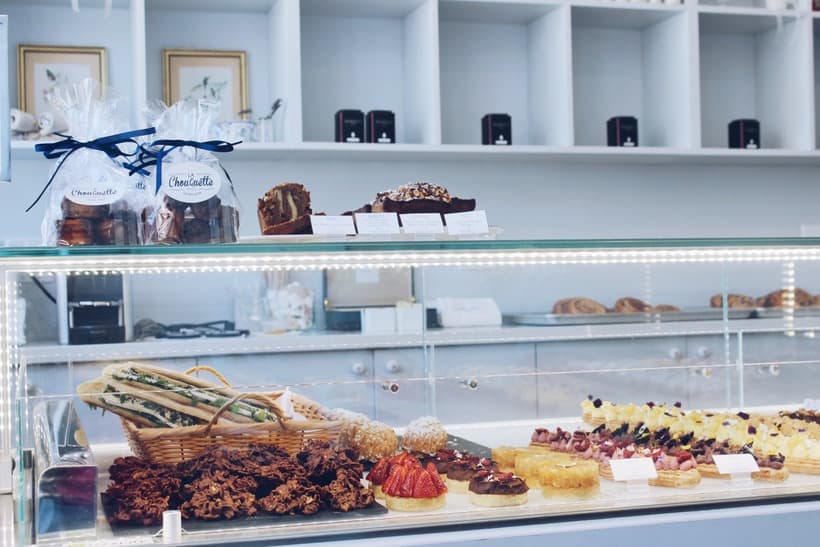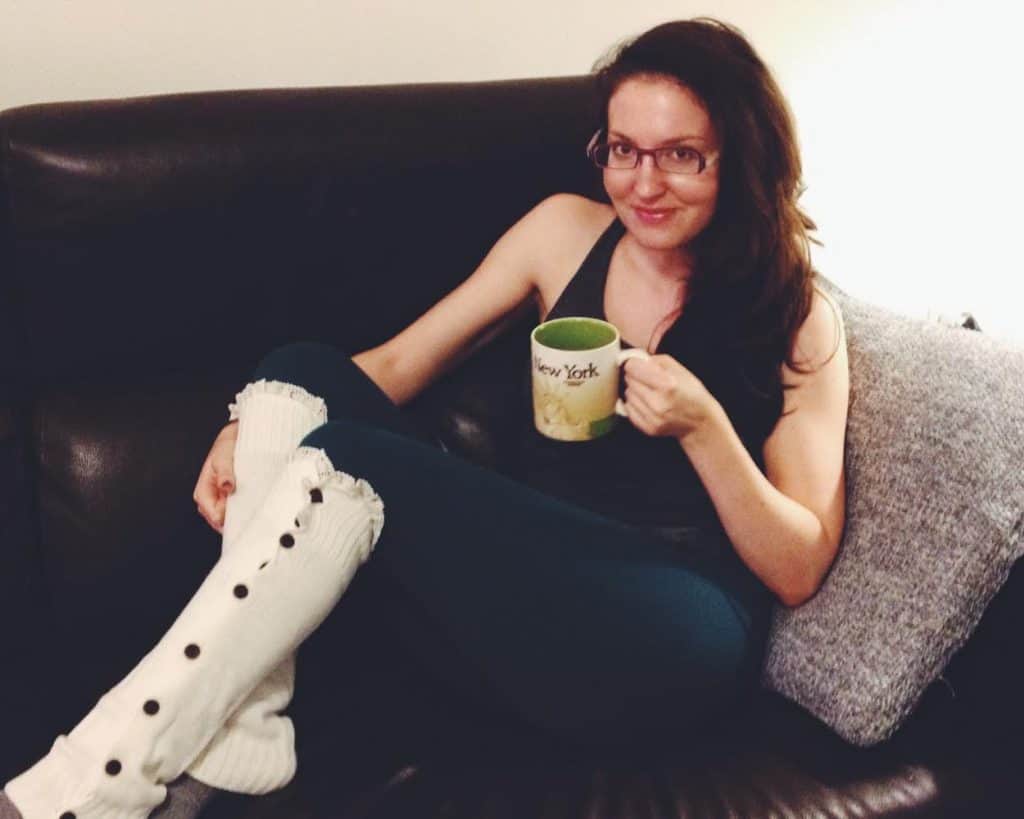“Do you feel French?” someone asked me recently. I had to think about it. How do you feel French and what does that even mean?
Do you feel French?
I’ve been living in France for almost six years now and I’m a permanent resident, which affords me the right to live and work in France indefinitely. In terms of citizenship, I’m an American citizen. I hold an American passport. My formative years were spent in the USA and I moved to France as an adult with barely intermediate French. I’ve traveled all around France and I’m fortunate that I’m able to travel back “home” often.
So all things considered…
Do I feel French? Not really. I am American first and foremost and always will be.
But that doesn’t mean aspects of French culture haven’t rubbed off on me along the way. My husband is French, I speak French, and I live in France so I do all kinds of French things. I’ve embraced the French way of life and it’s been for the best.
I love the veterinary care and human health care here. The emphasis on fresh food, family time, and the work/life balance all are things that France has going for it. I enjoy the French way of life even if there are maddening aspects to la vie française.
But do I feel French at my core? Not really. Sometimes. I don’t know. It’s complicated. How do you feel French anyway?
That’s the short answer. I think we need to unpack the question. To fully answer if I feel French, we’d have to define what being French is.
So what is it? Do you feel like you’re the nationality that you are?
What makes you feel American? Is it doing American things? Speaking English? Living in the US? Having an American passport? Doing certain things or acting a certain way? A mindset?
If I were to apply those parameters to my life in France, I guess I should feel French. I live in France, I speak the language, and could apply for French citizenship so I’d actually be French on paper.
Is feeling French a surface level thing or does it go deeper and affect who you are at your core?
I don’t know.
I guess I feel somewhat French in that I’m immersed in everyday French life here and la vie française has become my normal. But it goes beyond dressing or acting a certain way. One’s identity goes deeper than purely speaking a language, doesn’t it?
I’ve adapted my own behaviors a little bit (like this post on being a model foreigner) and do regular stuff like picking up things at the market and visiting wine producers to buy wine directly, grabbing a baguette from the boulangerie, etc. I’ve traveled extensively around France and learned all about the places and people that make France the remarkable place it is.
I think having a French husband makes me feel French sometimes (although we speak English at home). At my core, I know I am American — I’m just me — and I wouldn’t have it any other way.
I stopped trying to be something I’m not a long time ago.
Do you identify with a certain nation and its people? I think we can feel like a mix of cultures and identify with parts of them — even if we’re not physically there.
We take things with us as we move through life — habits, cultural norms, mannerisms, ways of speaking and acting that we pick up along the way.
I’d like to think I’ve taken on some of the positive aspects of French culture and meshed them with who I already was.
So back to the original question… “Do you feel French?”
Well, I feel like myself. I’m a mix of cultures, mindsets, and experiences that have shaped me and will continue to shape the person I am.
I’m not sure I’ll ever “feel French” and that’s OK… because I’m not French. I don’t necessarily need to feel French or be French to be OK.
I’m American and happy to be a guest (albeit a permanent one) in this beautiful country I now call home.
***
Do you feel like your nationality? Do you feel like you belong where you live? How do you feel French?
HOW DO YOU FEEL FRENCH? PIN ME:










It takes time. I feel more and more French as the years go by.
My grandma left Europe when she was 8. When she died at age 100, she still had a bit of an accent, and she definitely liked certain foods from the old country, though she hadn’t seen it for more than 90 years. But she considered herself American.
I feel like the place we spent our formative years is the most influential when we look at our identity. So even though your grandma missed some foods from Europe, she considered herself American. Makes sense. I hope with time, I will always still feel American. I’d hate to lose that! Maybe I’ll feel French i I moved back to the US.
Of course Diane you are french, with all the good things you write about us, more than we do!
I will sponsor you all the time!
Merry Christmas, happy New Year and best wishes to you all.
Awww, thanks Daniel! Appreciate that. Merry Christmas to you as well!!
Totally know what you mean, Diane. For me personally, I hold citizenship in two countries and am the offspring of a parent from each. I never feel fully Australian (except when in England). I never feel fully English (except sometimes in Australia). It is maddening. I’ll never belong in either country. And I’m 100% okay with it – it makes life interesting! I love this quote from the book “Almost French” – “it’s a curse to love two countries, but it’s a blessing as well”. La vie française sounds like a mighty fine way of living to me.
Hi LC! Can totally identify with what you wrote about feeling more like one nationality when you’re in another country, so for me feeling more American while living in France. When you’re in America, it’s very easy to not notice the “Americanness”… we’re surrounded by our own people. Sure, people are different but we’re homogeneous in a lot of ways. Leaving has made me feel closer to my country(wo)men. It’s not a bad thing. Def a blessing.
Tell me, did you grow up in Oz? Do you sound more Australian or English when you speak? (fascinated by accents so forgive the random q)
Haha no worries. I grew up in Oz and I think I sound more Australian, but no one can ever pick it and it definitely warped a bit when I lived in the UK. I think people outside of the country expect us to have a broad accent à la Crocodile Dundee, not realising that there are a lot of different accents countrywide. I mean, not like it is across Britain or the US, but there are definite differences. I agree, it is fascinating!
A moving question that I translated with “Where are you home?”
I’ve been living in the US for over 4 years but that doesn’t make it my home. It’s more the place where we have our house, yard, cars, work, and daily life. I like it very much, but…
Before the US, I lived for over 20 years in Germany that I’m missing so much during the holidays (I took over all the German holiday traditions but one: we still celebrate Christmas on the 25th!). Is there my home? I’m not sure. I feel home when I’m back there, but I’m happy not to live in Germany anymore. I can’t imagine to retire there either!
I was born and raised in France but I left in my early 20s. I love France, I feel comfortable being in France, but it doesn’t feel really like home anymore.
Do I feel French? Yes, definitely.
Do I feel German? Yes, at work mostly.
Do I feel American? Nope
Do you feel my pain while thinking about it??
Hi Catherine! Home is such a complicated concept and even more so in your case when you’ve lived in 3 countries!
I think we “feel” like the nationality where our identity and sense of self was first formed, so maybe wherever we lived when we were 16-22 years old. Just my non-scientific opinion. 😉 But it’s sticky and can change with time, with moves, with life changes. Not an easy thing to nail down by any means. Love this topic though. Thank you for your input.
I think most of us feel at our core the nationality we grew up with, now I am an Aussie never lived anywhere else so a bit hard for me to truly understand. I reckon no long how long you have lived in a different country to the one you were raised in part of you will always be the nationality of your birth and upraising
Yes, definitely agree with you that we often feel like we’re nationality we grew up with, wherever that is. Not necessarily birth, but where we spent our formative years.
When I’m asked if I feel Canadian, I usually shrug and say “depends”. Depends on what I’m doing, depends on the situation, depends on so many things! Really, I’m both, French and Canadian and maybe even Chinese and other cultures we picked up along the way. Legally, I’m a French citizen and a Canadian citizen. But really, there are no ultimate culture test. You are what you are, what you choose to be 🙂
Hi Juliette, yes, I completely understand the “depends” answer. So many factors feed into our identity and how we see ourselves and our place in the world. It can even vary during the same day, especially when you speak multiple languages and wear different hats, so to speak. I like how you put it, “you are what you are, what you choose to be.” So true!
When I first moved to Switzerland 20-some years ago, the commercial internet didn’t exist and international phone calls were crazy expensive, so I was almost completely disconnected from friends and family back in the US. For a while I felt like I didn’t belong anywhere–I was far from home and yet Switzerland wasn’t my home. It took a while to settle in but…I never really settled in. I didn’t learn the language so shame on me. Now that I live part-time in France and speak the language, I feel more at home in France than I did in Switzerland. But I’m still a Yank at heart.
Keith, I can’t imagine how different things must have been then. I don’t know how I’d manage without technology and feeling disconnected from friends and family. So happy to hear you feel more at home now in France — feeling like you don’t belong can be crushing.
It was ironic to see this pop up because somebody just recently said to me, “well, after a year, you must feel a little French now.” Um, no. Honestly, I don’t know that I will ever feel French given that I moved here in my 30s. I love France though – the first year certainly had low moments, but I am certain that this is where I want to be. However, it’s still very clear that things are just easier in the US with a common language and common cultural references (even compared with the Brits)!
I don’t feel fully American anymore either though. There are so many things that I see differently, even after such a short time, and I find that I just can’t reconcile myself with certain aspects of American culture anymore. Out of the two countries, I definitely feel more at home in France now – much of the culture just fits more closely with my personal values. The final piece of it feeling like “home” though was finally meeting an extended social group that is diverse enough that nothing feels lacking anymore. Ironically, while it was harder to find a social group in a rural area, the groups that exist seem to be broader in terms of gender, age and interests, so I now know at least one person who shares all of my primary interests. Of course, many of my new friends are British, so they’ve been joking that they’ll send me back to the US speaking “proper English” before I go back speaking French now. I suppose only time will tell on that one! 😉
Ah, what great timing! I understand what you mean about never feeling French. I think it comes and goes and sometimes something feels innately French and you catch yourself acting more “French” but when I really think about it, I feel American. Whatever that is. 😉
As you said, as long as nothing feels like it’s lacking, it doesn’t matter if we feel French or something else. We can be just fine!
Ha about the “proper” English comment. Do they really think their English is superior?
They think it’s funny that I say I speak English and differentiate that from “British English” – we speak American after all! I’d been previously unaware that “American” was a language
Such an obnoxious thing for them to say!! I’d shut that sh*t right down.
I find it kind of funny and they’re not being mean with it. I mean, English came from England, so I can see why they think it’s odd that I refer to it as “British English.” Usually, it’s in the context of us discovering yet another difference between what they call something and what we call it. So, I’d say, “we call it a pacifier, but in British English, it’s a dummy” and they’d differentiate by using “American” vs. “English.”
As long as it’s educational and all in good fun. 🙂 If there’s any superiority implied, I wouldn’t have any patience!
Very good post Diane, it touches lots of us! I also really like your blog makeover! In all my years abroad, I felt British the most but I loose my Frenchness too, though I work in French, have French colleagues, talk about French all day long in my classrooms and am even dating a French man. I am not Canadian yet and not sure I will ever be, at least culturally speaking. The language you can master but not the cultural references from everyone’s else childhood.
Thanks Kenza! Yup, the redesign was a much-needed gift to myself over the summer. 😉
You bring up a good point about cultural references. They are so important and often the last thing we learn as language learners. I have to say, even 6 years here, I can’t say I’m too on top of French cultural references.
Where are you living now? I know you were in Hungary a couple of years back and then back in France, but are you in Canada? Merry Christmas to you!
Yes, I am in Canada and hopefully not going anywhere else! I am starting the permanent residency paperwork. I am in Winnipeg, Manitoba, where nobody ever goes, where it’s flat and cold 😀 Hungary was indeed in 2015, after Australia, Canada (Manitoba as well), Jersey (in the Channel) and England. A lot of moving, it’s nice to finally settle 🙂
Interesting read! I guess it’s a personal feeling. I am French, but didn’t think much of it until I moved to America… and I’ve never felt more French! I’ve lived in America for 14+ years and I have changed and adjusted but I can’t say I feel American. I guess when you live abroad, you’re always in between 2 cultures and it’s difficult to truly be identifying with just one.
I’m English Canadian, but lived in Quebec for 26 years. I’ve been back in Toronto for over 18 years. I lived in Quebec during an important time in my life, between 18 and 44. I went to university there (in French), worked there, got married and had my kids there. I really miss Quebec and miss speaking French in everyday life (I only speak it now at work. It makes it very artificial.); I know a lot about Quebec history and culture, I know the expressions and understand the accent. But I feel very much caught in a no-man’s-land, somewhere between English Canada and Quebec. I’ll never totally belong to either one. It’s both a gift and a difficulty, but I wouldn’t trade it for the world.
Maybe the reality is that as humans we are on an eternal quest to feel at home when on reality we are at home inside of ourselves where ever we are. Our eternal and universal yearning for things from our youth has inspired novelists forever and may be something everyone chases to find again.